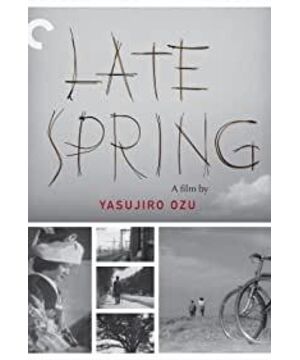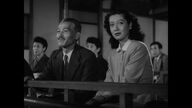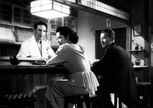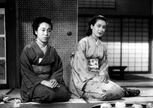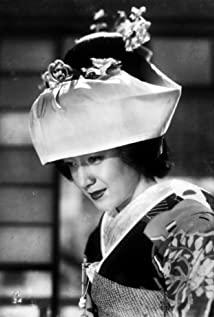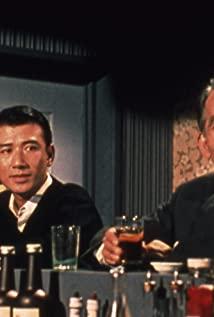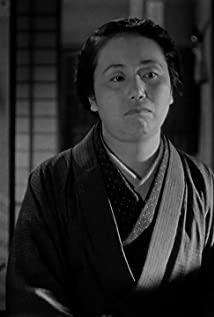In fact, under the strong traditional Japanese atmosphere of "Late Spring", there is a hidden modern atmosphere. The representative of traditional culture in the film can be said to be an aunt. She thinks that the bride gorged on sashimi at the wedding and lost her old manners. She is even more enthusiastic about Noriko's blind date, so that compared with her, the attitude of the two parties, the father and the daughter, is rather cold. The daughter does not want to get married, as I have said before, because she wants to support her father. Without her by his side, my father's life would be very inconvenient. Does the father support his daughter's marriage? As far as the traditional concept is concerned, men should be married and women should be married. As a father, how can a father not support his daughter's marriage. However, at the end of the film, on the night of his daughter's marriage, the father came home and peeled an apple by himself. Facing the emptiness around him, he sighed and felt very disappointed. Obviously the father did not want his daughter to marry. However, the daughter does not marry for a long time, just to support her father, which will somewhat provoke gossip from the neighbors and relatives. Just like I feel that my daughter has some Electra. Otherwise, there is no need for her to be dissatisfied with her father's plan to remarry - although, as far as the film is concerned, this can also be interpreted as, because she thinks that remarriage is unclean, especially a woman who remarrys is not a good thing, and she is worried that her father will get in trouble.
However, although the director's stance may not be so conservative, what really attracted me to "Late Spring" was not its gist, but its performance. No love, no daggers, no poison, no blood, but still let me experience the fun of watching movies, and it's not boring at all. This cannot but be said to be the credit for the wonderful performances of the actors. A movie that makes people sit still doesn't have to be full of violence and sexual encounters. I don't know who said that, there are too many violent plots in the film, which is a reflection of the director's lack of expressiveness and imagination. Putting the usual scenes of girlfriends bickering and father-daughter angry on the screen, without losing his anger, Yasujiro Ozu is worthy of being a master director.
"Late Spring" has only one scene that I couldn't appreciate, and it's not the director's fault, it's because I'm not Japanese. Just like I don't like the pale face and short eyebrows of geisha, Noh drama seems to me like a living puppet show: half a century has passed...
View more about Late Spring reviews


